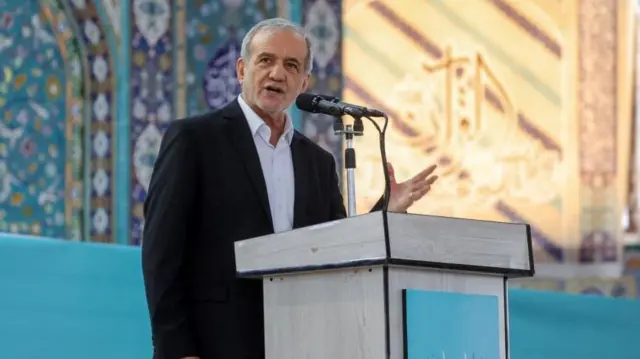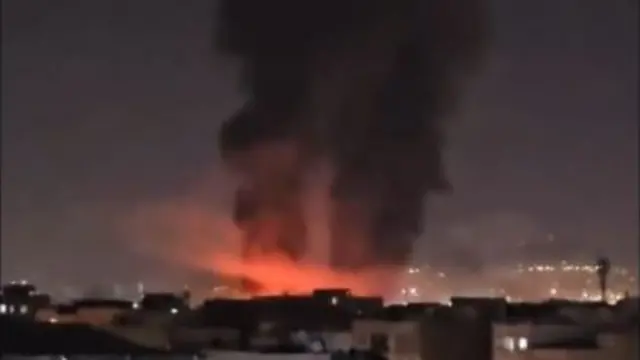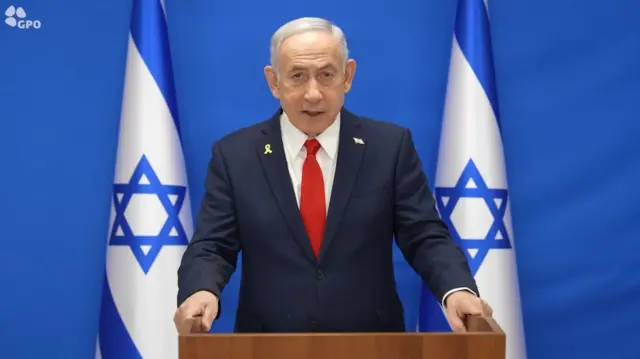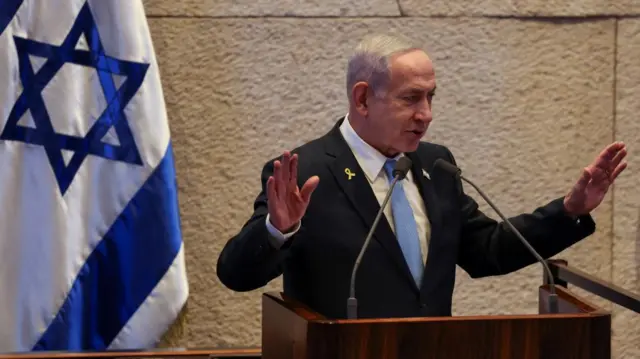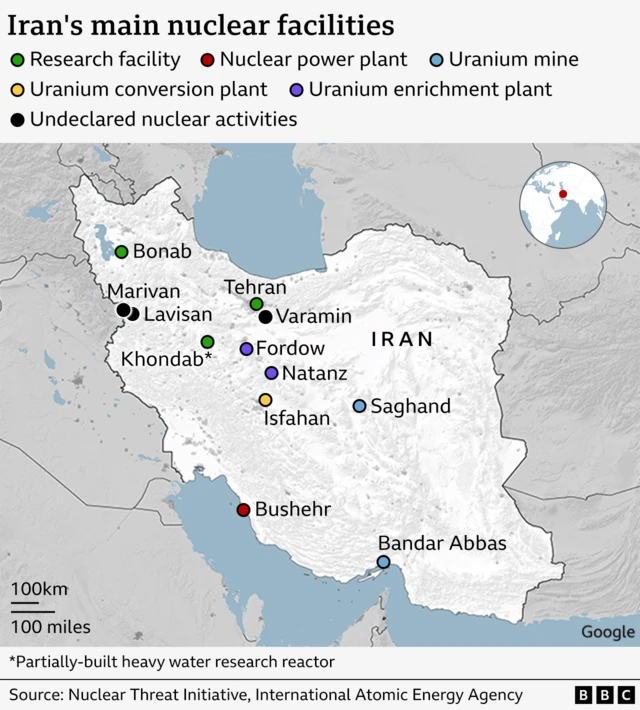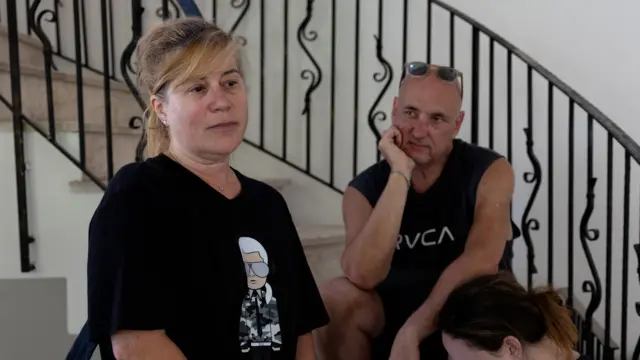
Satellite images show extent of damage to Natanz nuclear sitepublished at 17:22 BST 14 June
 Image source, Reuters
Image source, ReutersBy Paul Brown
Satellite imagery taken this morning by Maxar Technologies reveals damage to several buildings at Iran's Natanz nuclear site following Israeli strikes yesterday.
The location of the damage is consistent with verified footage from the scene captured yesterday which showed columns of smoke rising from the site.
The image shows severe damage to three buildings, and burn marks around two other structures - one of which appears to be an electrical substation.
Yesterday the head of the International Atomic Energy Agency, Rafael Grossi, told the UN Security Council that "the above-ground part of the Pilot Fuel Enrichment Plant, where Iran was producing uranium enriched up to 60% U-235, has been destroyed".
The images released by Maxar also show the Fordow enrichment facility and Arak heavy water reactor, although no obvious damage is evident at either site.
Iranian media reported that Fordow was targeted yesterday, but the Israel Defense Forces (IDF) has denied this.
